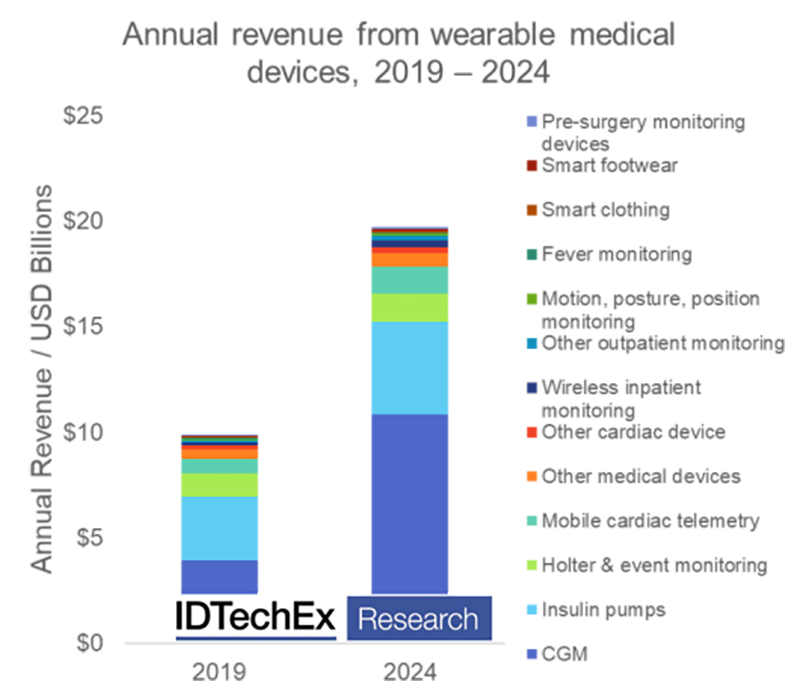Medical wearables market forecasts to reach $19.7bn by 2024
IDTechEx have forecast the medical wearables market to be worth $19.7bn by the year 2024 in their latest research. This market will be driven by the demand for continuous health monitoring and point-of-care diagnostics for the management of chronic diseases.
IDTechEx has been following these market trends over the past ten years and have now launched a brand-new event, Healthcare Sensor Innovations, to highlight the role that technology will play in changing the face of healthcare.
The conference and table-top exhibition addresses the latest technological developments that are enabling point-of-care diagnostics and continuous monitoring. Healthcare Sensor Innovations will be held on 25th and 26th of September 2019 at The Gillespie Centre in Clare College, Cambridge, UK.
Point-of-care diagnostics and continuous monitoring are key to the management of rising healthcare costs due to increasing populations of people with chronic diseases. One in two adults in the US have a chronic disease, and one in four adults has two or more. Patients with chronic diseases require close monitoring over a long period, making these diseases very costly to manage.

An example of technology’s potential in healthcare is the continuous glucose monitoring (CGM) device. These wearable patches improve a person’s management of their condition and decreases their chances of costly health crises by providing continuous monitoring of their health status. As such, IDTechEx have forecast the market for CGM devices to grow at a CAGR of 13.5% over the next ten years.
Attendees of Healthcare Sensor Innovations have the opportunity to learn directly from top companies developing medical wearables and sensors. The keynote speakers include directors, principal engineers, and chief technologists from GlaxoSmithKline, Boston Scientific, Smith & Nephew, Centre for Process Innovation, and Maxim Integrated.
The event provides a unique perspective on medical wearables and sensors by following the technologies that enable remote patient monitoring and point-of-care diagnostics. These capabilities are key in the rise of digital health and will only become more critical as consumers increase their demand for personalised healthcare with decentralised delivery.





